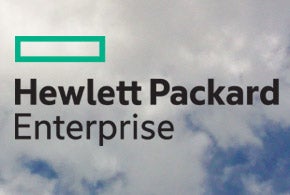HPE
 How HPE Will Reward Partners for Solution Expertise
How HPE Will Reward Partners for Solution Expertise
HPE mapped out 11 competencies partners should ideally specialize in to generate higher margins. Six are scheduled to be in place this year.
 Application Development and Transformation
Application Development and Transformation
Heavily focused on cloud application migration, this competency area involves a lot of services expertise provided by both the partner and HPE.
 IT Automation and Orchestration
IT Automation and Orchestration
The IT automation and orchestration compentency is built mainly around the HPE Helion Cloud Suite. HPE is looking to provide the foundational management component for both private and public cloud deployments.
 Data Management Infrastructure and Architecture
Data Management Infrastructure and Architecture
HPE is looking to drive adoption of real-time analytics using big data. The data management infrastructure and architecture spans everything from SAP HANA and Hadoop to Vertica and open-source Cassandra databases.
 Digital Collaboration
Digital Collaboration
The digital collaboration competency is primarily aimed at Skype for Business implementation. The opportunity for HPE partners ranges across multiple forms of network infrastructure needed to enable a variety of low-latency conferencing applications.
 Incident Recovery
Incident Recovery
Incident recovery is part of the company’s overall security strategy. HPE is putting more focus on helping IT organizations respond faster to malware infestations.
 Intelligent Workplace
Intelligent Workplace
Although virtual desktops are a small percentage of the desktops in the enterprise, with the rise of the cloud, virtual desktops have become a key element of workspace-as-a-service solutions.
 Risk Management and Secure Design
Risk Management and Secure Design
Recognizing there is no such thing as perfect security, HPE wants to work with partners to help customers identify their most strategic assets as part of a layered approach to IT security.
 Threat Detection and Response
Threat Detection and Response
The fundamentals of IT endpoint security still apply. HPE is aiming to help partners build a practice around managed security services.
 Data Discovery and Assessment
Data Discovery and Assessment
Before data can be turned into a strategic asset, IT organizations need to know how much of it there is and how much of that data has been duplicated. For HPE and its partners, data discovery is the first step toward providing data management services.
 Data Analytics and Business Insight
Data Analytics and Business Insight
Analytics are starting to be processed in real time to create actionable insights capable of informing transactions and making better business decisions. HPE sees this practice as being core to any digital business transformation.
 Campus Mobility
Campus Mobility
Now that more than half the devices end users employ don’t have Ethernet ports, new networking frameworks (such as those from the Aruba Networks arm of HPE) for managing usage of these devices across a campus environment are going to be required.

